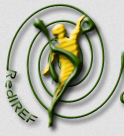Motivation test for members of innovation projects in sports organizations. Specificities in the boxistic activity (Original)
Resumen
Motivation is one of the variables recognized in most of the methodologies studied for the management of innovation by projects in the sports context, however, the search for effective instruments to measure it is a problem to solve, in this context the perception that have the members of the projects on macromotivating factors and micromotivators in the organization is a good indicator. To evaluate the theoretical and empirical validity of an instrument to measure the motivation of the heads of innovation projects in the sports context. On the one hand the theoretical validity is developed from the numerical taxonomy and on the other the reliability, sensitivity, is valued through the empirical study developed in the Faculty of Physical Culture of Granma, through a successful project, taking as a case of I study his boss with a retest in three moments. The economy and utility is valued through experts with the peer comparison as a procedure. It was possible to confirm from the theoretical and practical point of view the fulfillment of its validity, reliability, sensitivity, economy and utility, despite the small sample size. The instrument developed has validity to measure the motivation of the heads of innovation projects in sports organizations.
Descargas
Referencias
2. Barroso G. (2011) Modelo de gestión de la evaluación exante de proyectos de ciencia e innovación con enfoque de integración estratégica para organizaciones de actividad física y deporte [Tesis Doctoral] La Habana: Universidad de Ciencias de la Cultura Física y el Deporte; 2011 [Consultado: 20 de mar 2014]. Disponible en:http://revistas.mes.edu.cu/greenstone/collect/repo/import/repo/20120706/9789591618795.pdf
3. Bouza Herrera, C. N. y Sistachs Veja, V. (2004). Estadística. Teoría Básica y Ejercicios. La Habana: Editorial Félix Varela.
4. Colectivo de autores .Instrumentos de evaluación psicológica. Disponible en:
5. Del Toro, L. (2003). Dirección de la Cultura Física, Tomo I y II. La Habana. Pueblo y Educación.
6. Hernández R, Fernández C y Baptista P (2010). Metodología de la Investigación. 5ta Ed. México D. F: Mc Graw-Hill; 2013. [Consultado: 20 de mar 2014] Disponible en: http://www.usearchmedia.com/download/?kw=Metodolog%C3%ADa%20de%20la%20investigaci%C3%B3n,%205ta%20Edici%C3%B3n%20%E2%80%93%20Roberto%20Hern%C3%A1ndez%20Sampieri%20RTF&sf=search_books&ref=4972781&system_controller=signup&system_action=index
7. Hoffmann, A., Stover B. y Fernández, M., (2013). Correlaciones policóricas y tetracóricas en estudios factoriales exploratorios y confirmatorios. Ciencias Psicológicas. Vol.7 no.2.
8. Kaplan, Robert y Norton, David 2004. Mapas estratégicos. Convirtiendo los activos intangibles en resultados tangibles. Harvard Business School Press. EUA.
9. Kenneth, T. (2002). La motivación intrínseca y su funcionamiento. Recuperado de: http://www.google.com.cu/url?q=http://www.sld.cu/galerias/doc/sitios/infodir/la_motivacion_intrinseca_y_su_funcionamiento.doc&sa=U&ei=2CWUseALobcyQHc5YDADQ&ved=0CCQQFjAA&usg=AFQjCNF4h9ovl7tKrxtupe2jOoXtrVrMvA
10. López, J. (2004). Sociología del deporte. Selección de lectura para la docencia. Editorial Deportes, Ciudad de La Habana.
11. Merino, E. (2013). Análisis de validez de escala de irritación en una muestra de profesores de educación primaria. Anales de Psicología. Vol 29 no. 1 p 123-130.
12. OCDE. (2005). The Measurement of Scientifc and Technological Activities: Proposed Guidelines for Collecting and Interpreting innovation Data. Oslo Manual. (Third edition). París, France.
13. Peiró, J.M. (2005). Psicología de la Organización. Félix Varela. Ciudad de La Habana.
14. Piaget, J. (1969). Psicología y Pedagogía. Barcelona, España: Arie.
15. Project Management Institute (2009). Guía de los fundamentos para la dirección de proyectos. Cuarta Edición. Newtown Square, Pennsylvania.
16. Vigostky, L. (1968). Pensamiento y lenguaje. Editorial. Pueblo y Educación. La Habana.

































